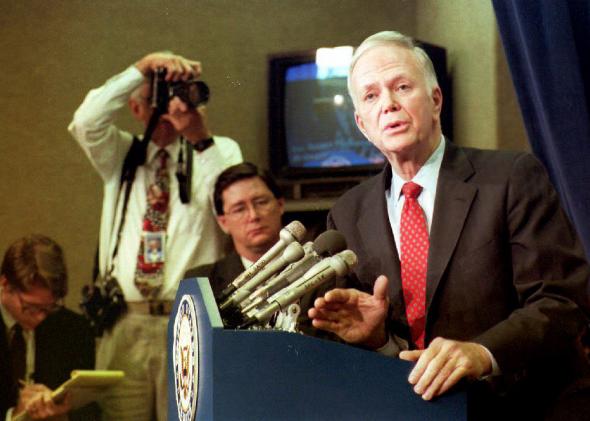The Gaffe Police Are Back to Make Politics Glib and Boring

Photo by Jennifer Law/AFP/Getty Images
This is my final day at Slate, and if I'm gonna go out, it's gonna be while defending Joe Biden from the gaffe police. My bias is clear: Joe Biden is one of the last products of a bygone political era, before the tracker, before the Twitter news cycle, when politicians could hang out and say whatever. For this, for his refusal to be predictable and boring, he is regularly pummeled. Sometimes rightfully so—he probably should not have referred to "Shylocks" in Iowa this week, because it is the year 2014.
Sometimes—often—the shaming is unwarranted. We have an example of that today, in the reaction to Biden's comments at a DNC women's conference. Biden was on a familiar tear about how the Republican Party intends to win the midterms by tightening access to the polls in swing states. This was not always so. "It was Republicans who expanded access to the polls," said Biden. "It was Republicans in the Judiciary Committee who expanded Motor Voter. It was Republicans that were involved—guys like Mac Mathias, Packwood, and so many others."
Mac Mathias was a liberal Republican from Maryland who retired uneventfully in 1986; Bob Packwood was an Oregon senator who resigned in disgrace in 1995, after the Washington Post broke the news that he'd sexually harassed women for years. Undoubtedly, this is what Packwood is known for in 2014, and reporters have universally branded this a gaffe. Packwood "isn't really the kind of person you should be speaking well of at a women's conference," writes WaPo's Aaron Blake. "For a Democratic Party who has made such a big deal of the GOP's supposed 'war on women,' praising someone with Packwood's history is a really bad idea."
Leave aside the old trope that the "war on women" can be neutralized by pointing out that Democrats have not condemned this or that creep in the party. Leave aside that Bill Clinton, who was impeached after lying about an affair with an intern, remains a popular figure in the Democratic Party, and that his wife is expected to be the party's next nominee. Leave aside JFK's dalliances, and FDR's, and Ted Kennedy's, etc. No reporter in the room has actually produced a woman who was offended by Biden's reference to Packwood, just as they are unoffended by the Democrats listed above.
No, more than that, reporters have chosen to forget why the Packwood scandal was so searing. Packwood was one of the Republicans best liked by women's rights activists. Packwood, elected in 1968, introduced an abortion legalization bill before Roe v. Wade was decided. As the Republican Party became uniformly pro-life, Packwood held out to the extent that Gloria Steinem raised money for him. You don't have to spend much time looking for Packwood stories to find one NARAL lobbyist's account of how Packwood opposed a right to life amendment at the apogee of the Reagan revolution.
At one point, despite the fact that it looked like we would easily defeat the measure, Packwood suggested that he filibuster the proposal. We could not say no to him, so we went along with him, letting him have his day in the spotlight. Indeed, when we suggested that we could get other Senators to join him, he demurred, saying he could do it alone. So, we watched him read the U.S. Constitution with a catheter attached to his leg.
This was the impression people had of Packwood when the allegations broke. He was fighting a re-election campaign; he lied; he won. Weeks later, the reaction to his resignation was colored by the fact that he'd defrauded voters. And it was tragic, for women's groups, because they'd trusted their increasingly lonely Republican ally while he'd been harassing women.
There, that's the short version of the story. Packwood's famous for the scandal, but if he died tomorrow, you'd probably see obit-writers struggling to contrast his downfall with all the reasons that Steinem, et al. had trusted him. The history of pro-choice Republicans, 1986's tax reform, and the less-partisan Senate are all skewed by the presence of Packwood, but he was there, and—hey!—Joe Biden mentioned it. And because people like to be retweeted, and to feign outrage, this becomes a gaffe, instead of a harmlessly off-key reference to one of Washington's great, strange, self-destructive careers.
